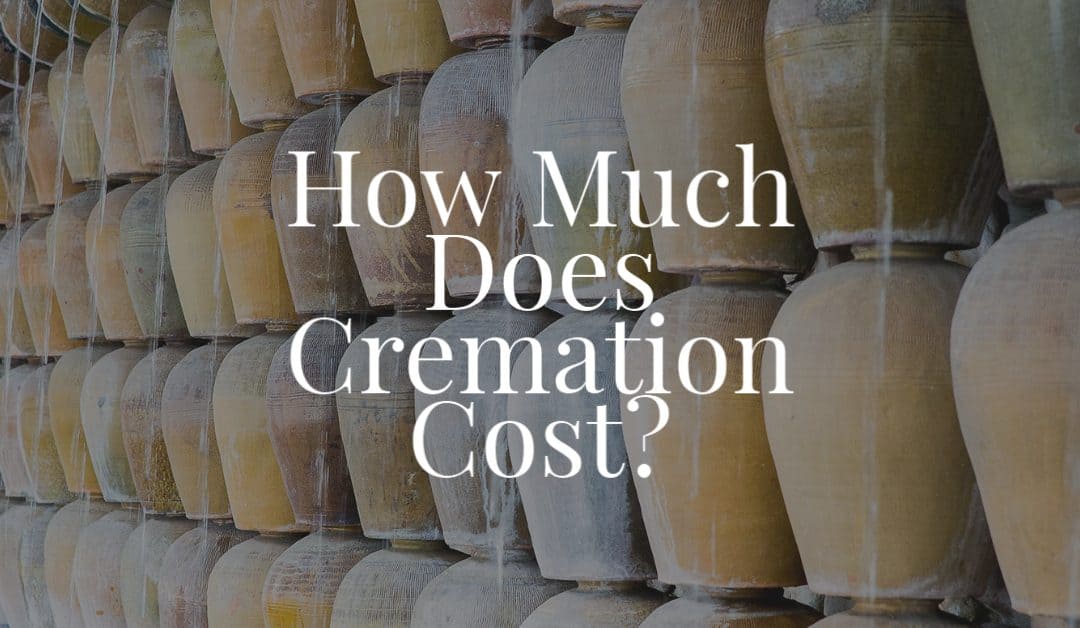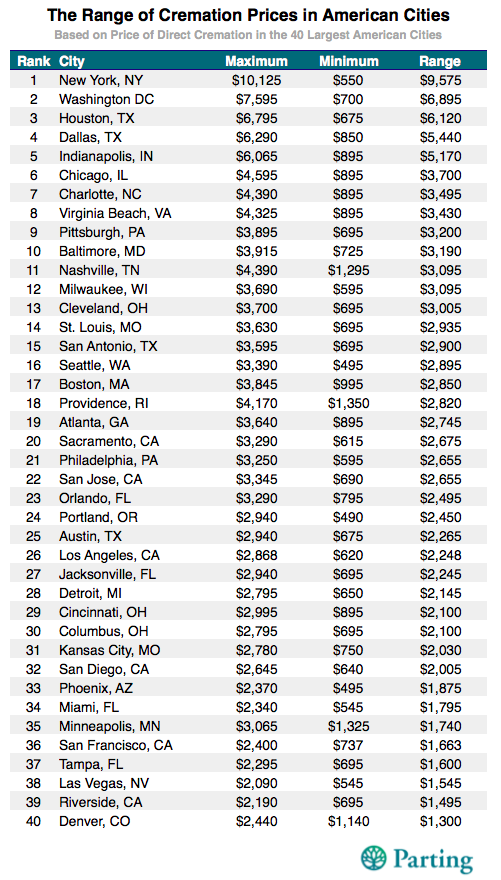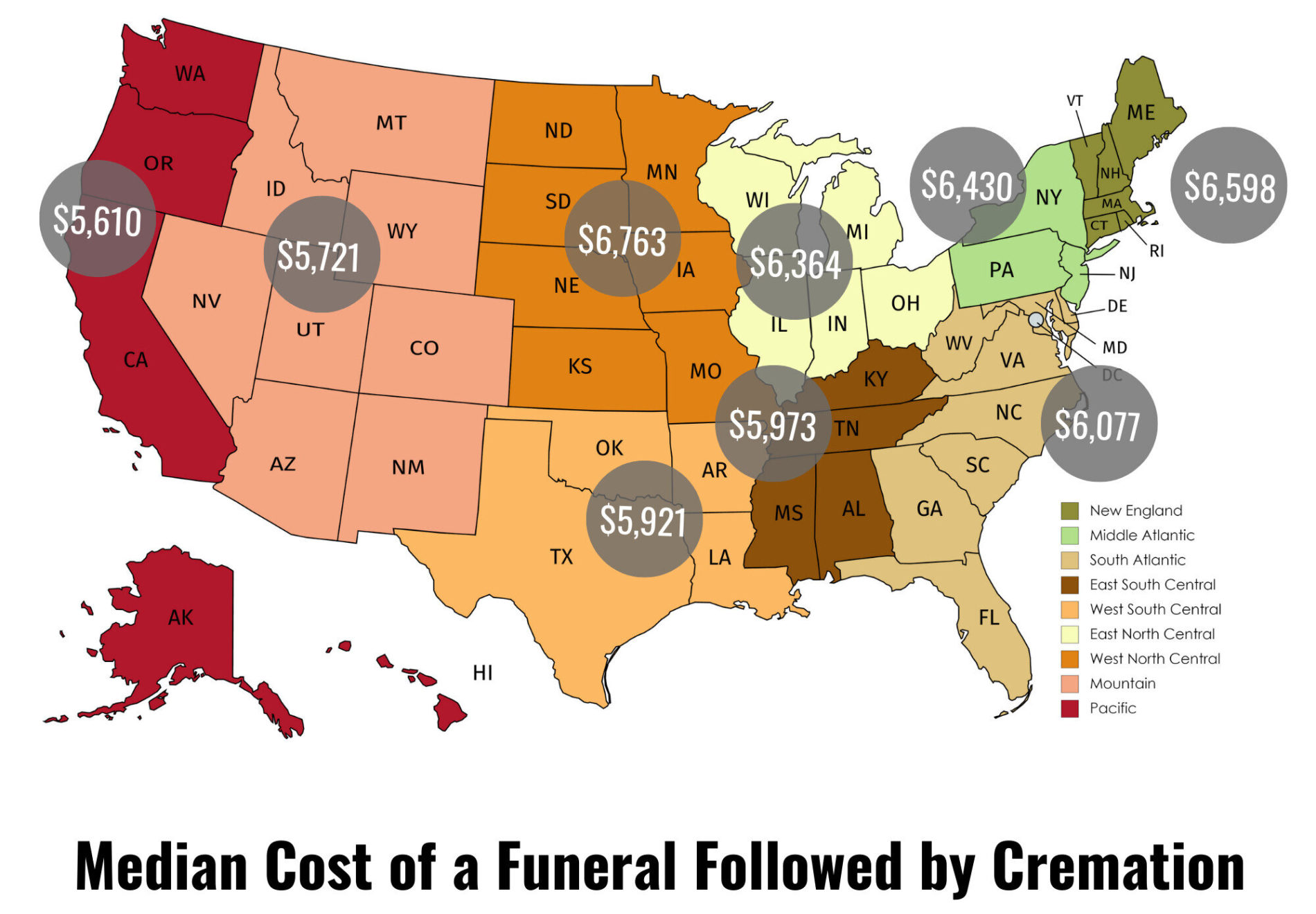How Much is Cremation: Unveiling the Costs
Cremation costs vary depending on several factors, including location, services chosen, and additional options. Generally, the cost of cremation can range from $500 to $3,000.
Cremation is becoming an increasingly popular alternative to traditional burials. It offers a more affordable and flexible option for families, allowing them to customize the memorial service according to their preferences. The cost of cremation typically includes transportation of the body, cremation process, necessary permits, and a basic urn.
However, additional expenses may be incurred if the family opts for a viewing, embalming, or a more elaborate memorial service. It is important to research and compare prices from different funeral homes to ensure you are getting the best value for your money.

Credit: rfhr.com
The Rise Of Cremation
Cremation costs vary based on location, services, and additional options. Factors like urn selection and memorial services impact the overall price. Families can expect to pay anywhere from a few hundred to several thousand dollars for cremation services.
Shift In Preferences
In recent years, cremation has become the preferred method of final disposition for many people. This shift in preferences can be attributed to various reasons such as cost, environmental concerns, and flexibility in memorialization options. Unlike traditional burials, cremation offers a range of options for memorialization, including scattering the ashes in a meaningful location, keeping them in an urn at home, or interring them in a cremation garden.
Statistical Trends
According to the National Funeral Directors Association, the cremation rate in the United States has been steadily increasing. In 2020, the cremation rate was 56%, and it is projected to rise to 78% by 2040. This upward trend is not limited to the United States, as many countries around the world have also seen an increase in cremation rates in recent years.
Cost Comparison
One of the primary reasons for the rise in cremation is the cost. Cremation is generally less expensive than traditional burial. The cost of a traditional funeral can range from $7,000 to $12,000, while a cremation can cost as little as $1,000. The lower cost of cremation has made it a more accessible option for families who may not have the financial means to afford a traditional funeral.
Environmental Impact
Another reason for the increase in cremation rates is the environmental impact. Traditional burials can be harmful to the environment due to the use of embalming fluids, caskets, and burial vaults. Cremation, on the other hand, has a lower environmental impact since it does not require embalming and can be carried out with biodegradable urns. Additionally, cremation does not take up physical space in the way that traditional burials do. The rise of cremation is a trend that is likely to continue in the coming years. As more people become aware of the benefits of cremation, it is expected that the cremation rate will continue to rise. Whether due to cost, environmental concerns, or flexibility in memorialization options, cremation is becoming a more popular choice for families looking to honor their loved ones in a meaningful way.
Basic Cremation Process
Cremation costs vary widely, with the basic cremation process typically ranging from $1,000 to $3,000. Additional services or upgrades can increase the total cost significantly. It’s essential to research local providers for accurate pricing information and compare options before making a decision.
Steps Involved
Basic cremation involves several key steps to complete the process.
Time Frame
The entire cremation process typically takes around 2-3 hours to complete.
The basic cremation process is a straightforward and dignified method of handling a deceased loved one’s remains.
Steps Involved
- Transportation of the deceased to the crematorium
- Verification of identity and authorization for cremation
- Preparation of the body and placement into the cremation chamber
- Cremation process using high temperatures to reduce the body to ashes
- Cooling of the remains, removal of metal objects, and processing into ashes
- Placement of the ashes in a temporary container or chosen urn
Time Frame
- Transportation to crematorium: 1-2 days after death
- Completion of cremation process: 2-3 hours
- Return of ashes to family: Within 1-2 weeks
Itemizing Cremation Costs
When planning a cremation, it’s important to understand the breakdown of costs involved. By itemizing cremation costs, you can make informed decisions and ensure that you are getting the services you desire within your budget. Let’s take a closer look at two common options: Direct Cremation and Cremation with Memorial Service.
Direct Cremation
Direct Cremation is a straightforward and cost-effective option. It involves the cremation of the deceased without any formal funeral or memorial service. While the costs may vary depending on your location and service provider, let’s explore the typical components of direct cremation:
- Cremation Fee: This covers the actual cremation process, including the use of the cremation facility and necessary staff.
- Transportation Fee: This includes the transportation of the deceased from the place of death to the crematory.
- Container Fee: A simple container, such as a cardboard box or an alternative approved by the crematory, is used for the cremation process.
- Death Certificate Fee: This covers the cost of obtaining the death certificate, which is an essential legal document.
- Permit Fee: Some jurisdictions require a permit for cremation, and this fee covers the necessary paperwork.
It’s worth noting that direct cremation does not include additional services like embalming, viewing, or a formal funeral service. This option allows for a more affordable and straightforward approach to cremation.
Cremation With Memorial Service
If you prefer a more traditional approach with a memorial service, then cremation with a memorial service might be the right choice for you. This option provides an opportunity for family and friends to gather, pay their respects, and remember the deceased. Here are the key components typically associated with cremation and a memorial service:
- Basic Service Fee: This fee covers the overall coordination of the cremation and memorial service.
- Embalming and Preparation: If desired, this fee includes the embalming and preparation of the deceased for viewing.
- Facility Rental: The cost of renting a facility for the memorial service, such as a chapel or funeral home.
- Memorial Service Arrangements: This covers the planning and organization of the memorial service, including any necessary permits.
- Transportation Fee: Similar to direct cremation, this fee includes the transportation of the deceased to the crematory.
- Cremation Fee: The cost of the actual cremation process, which may include the use of the cremation facility and staff.
- Death Certificate Fee: This covers the necessary paperwork to obtain the death certificate.
By understanding the itemized costs associated with cremation, you can make informed decisions based on your preferences and budget. Whether you opt for a direct cremation or cremation with a memorial service, it’s essential to choose a reputable service provider who can guide you through the process and answer any questions you may have.

Credit: www.parting.com
Additional Expenses
Cremation costs can vary depending on additional expenses such as the type of urn, memorial services, and transportation. It is important to consider these factors when determining the overall cost of cremation.
Cremation is an affordable alternative to traditional burial, but like any other funeral arrangement, it comes with additional expenses. While the cost of cremation itself varies depending on location and service provider, there are other costs to consider when planning a cremation. These additional expenses can include urns, keepsakes, and memorial markers.
Urns And Keepsakes
After the cremation process, the remains are usually placed in an urn. Urns come in different shapes, sizes, and materials, which can affect the price. Basic urns made of materials like plastic or cardboard can cost under $100, while more elaborate urns made of metal or wood can cost over $1,000. Additionally, some families may choose to purchase keepsakes, such as jewelry or small urns, to keep a portion of the remains close to them. These keepsakes can range in price from under $50 to several hundred dollars.
Memorial Markers
Another additional expense to consider is a memorial marker. Whether it be a headstone, plaque, or marker, these items can provide a place for loved ones to visit and pay their respects. The cost of a memorial marker can vary depending on the material and design. Basic markers made of materials like granite or bronze can cost around $500 to $1,000, while more elaborate designs can cost several thousand dollars. It’s important to keep in mind that these additional expenses are not mandatory, and families can choose to forgo them if they wish. However, if you do decide to purchase an urn, keepsake, or memorial marker, it’s important to budget accordingly and shop around to find the best price. By doing so, you can ensure that your loved one’s final arrangements are both affordable and meaningful.
Comparing Cremation To Burial
Financial Considerations
Cremation is often chosen over traditional burial due to its cost-effectiveness. The average cost of cremation is significantly lower than that of a traditional burial, mainly because it eliminates the need for purchasing a casket, embalming, and a burial plot. The costs associated with cremation typically include the cremation process itself, an urn, and any additional services or memorialization options.
Environmental Impact
When it comes to environmental impact, cremation is generally considered to be more eco-friendly than traditional burial. Cremation eliminates the need for land usage for burial plots and reduces the use of natural resources such as wood and metal for caskets. However, it’s worth noting that the cremation process does produce carbon emissions, which can be a concern for those focused on environmental sustainability.

Credit: www.lhlic.com
Financial Assistance And Preplanning
Plan for the cost of cremation by exploring financial assistance options and preplanning. Determine the total expenses for cremation services, including cremation itself and related costs, to help with budgeting and decision-making. Discover available resources and financial aid to alleviate the financial burden of cremation.
Financial Assistance and Preplanning When it comes to considering cremation as a final disposition option, one important aspect to take into account is the cost. While cremation is generally more affordable than traditional burial, it still requires financial planning. In this section, we will explore the financial assistance options available for cremation services, as well as the benefits of preplanning. H3: Insurance Policies Many individuals have life insurance policies that can be used to cover cremation costs. These policies often include a death benefit that can be utilized by the beneficiary to pay for funeral expenses. If you have a life insurance policy, it is essential to review the terms and conditions to determine if cremation expenses are covered. In some cases, the policy may have specific provisions for funeral expenses, including cremation. H3: Prepaid Plans Prepaid cremation plans are another option to consider when it comes to financially preparing for cremation. These plans allow individuals to pay for their cremation services in advance, often through monthly installments or a lump-sum payment. By prepaying for cremation, you can lock in the current price and alleviate the burden of expenses for your loved ones in the future. Moreover, prepaid plans often offer additional benefits such as customization options and the ability to select specific urns or memorial services. In addition to insurance policies and prepaid plans, there may be other sources of financial assistance available for cremation services. It is recommended to research local organizations, government programs, and charities that provide financial aid for end-of-life expenses. Some religious or community-based groups may offer assistance as well. In conclusion, exploring financial assistance options and preplanning for cremation services can help ensure that your final wishes are fulfilled without placing a financial burden on your loved ones. Whether through insurance policies, prepaid plans, or other sources of assistance, taking the time to plan ahead can provide peace of mind and financial security. Remember to consult with a funeral director or financial advisor to determine the best course of action for your specific situation.
Geographical Price Variations
When considering the cost of cremation, one crucial factor to take into account is the geographical price variations. Prices can significantly differ based on location, with urban and rural areas as well as different states often displaying varying price points.
Urban Vs. Rural
In urban areas, cremation services may be more expensive due to higher demand and operating costs. On the other hand, rural areas tend to have lower prices with fewer service providers and lower overhead expenses.
State-by-state Analysis
Each state has its own regulations and market dynamics affecting cremation costs. For example, states with high competition among providers may offer more competitive prices compared to those with limited options.
Navigating The Emotional Cost
Navigating the emotional cost of cremation can be challenging, as it involves dealing with the loss of a loved one while also considering the financial aspect. While the cost of cremation varies depending on several factors, such as location and services requested, it is generally a more affordable option compared to traditional burial.
Grief Support
During the process of cremation, it’s essential to recognize the emotional burden it may carry. Seeking grief support can provide comfort and understanding.
Making Informed Choices
Understanding the options available and making informed choices can help alleviate some of the emotional challenges.
Frequently Asked Questions
What Is The Average Cost Of Cremation?
The average cost of cremation in the United States ranges from $500 to $3,000. Factors such as location, service provider, and additional services can impact the final cost.
What Is Included In The Cost Of Cremation?
The cost of cremation typically includes the basic services of the funeral director, transportation of the remains to the crematory, the cremation process itself, and the return of the ashes to the family.
Are There Any Additional Expenses Associated With Cremation?
Additional expenses such as urns, memorial services, and cemetery costs may not be included in the basic cremation package. Families should inquire about these potential additional costs.
Can The Family Witness The Cremation Process?
Many crematories offer the option for family members to witness the cremation process. This can provide closure and comfort to the family during a difficult time.
Conclusion
The cost of cremation can vary based on location and services chosen. It’s important to consider all factors and options when making arrangements. By understanding the process and associated expenses, individuals can make informed decisions and plan for this end-of-life service accordingly.

